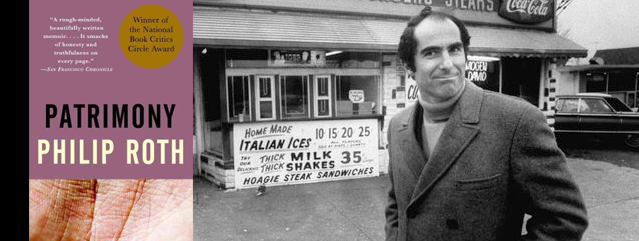

In doing so, he created the most expansive novel of his career - a big, stirring novel that testified not just to his gift for limning the psyche of the contemporary American male, but also to a talent for mapping the discontinuities of 20th century history. With “ American Pastoral,” Roth set aside the mirror games he used to complicate his own life on paper, and instead tackled the story of what happened to this country between World War II and Vietnam.

And although such a rambunctious piece of artifice can inevitably not be perfect, it is nonetheless in all its ways right. “American Pastoral” stares back at me audaciously unblinking as a great novel. There is about it a profound and heartening sense (and it is a profound book) that the verbal construction you’re undertaking as a reader represents absolutely the only way this mighty story could ever be brought into existence. The fusing powers of Roth’s imagination, conviction and raging intelligence are everywhere evident and exhilarating.


But underway, it is impossible to put down. Its narrative setup is Rothian and a bit tricked out. Its self-savoring longueurs are often very long. As eminently readable as it is, “American Pastoral” is - to my mind - also a novelist’s novel in the sense that it presents (as Adam Gopnik wrote upon the death of John Updike), a writer getting himself “fully expressed.” Thus, “American Pastoral” is anything but svelte. “ American Pastoral” is an easy choice for me and would probably rate high on any novelist’s list of contemporary masterpieces. This is my mother and father I’m talking about.” Michael Lewis “And there are more memories like this one,” Portnoy tells his analyst. Even as he knocks down the world around him, he can’t help but chronicle all that made him the man and the writer he became. But while Portnoy is shouting to his befuddled parents and the Newark Jews beyond, “Why are you doing this to me?” he’s also whispering “Why can’t I ever stop loving you?” Even at his most outrageous, Roth has always been wholly mature. It was funny, and angry, fuming and desperate. “‘See how purple? a real fall sky.” For young Portnoy it is “The first line of poetry I ever hear! And I remember it! A real fall sky …” When I read “Portnoy’s Complaint” as a teenager, I thought of it as a prison escape from the bonds of family, the sanctimony of religion, the strictures of being a good Jewish boy working his way toward permanent mensch-hood and his first ulcer. “Look outside baby,” Portnoy’s mother says. Here’s a line I’m guessing few people recall from “ Portnoy’s Complaint.” Mother and little Portnoy are standing by the kitchen window in 1940s Newark, New Jersey.


 0 kommentar(er)
0 kommentar(er)
